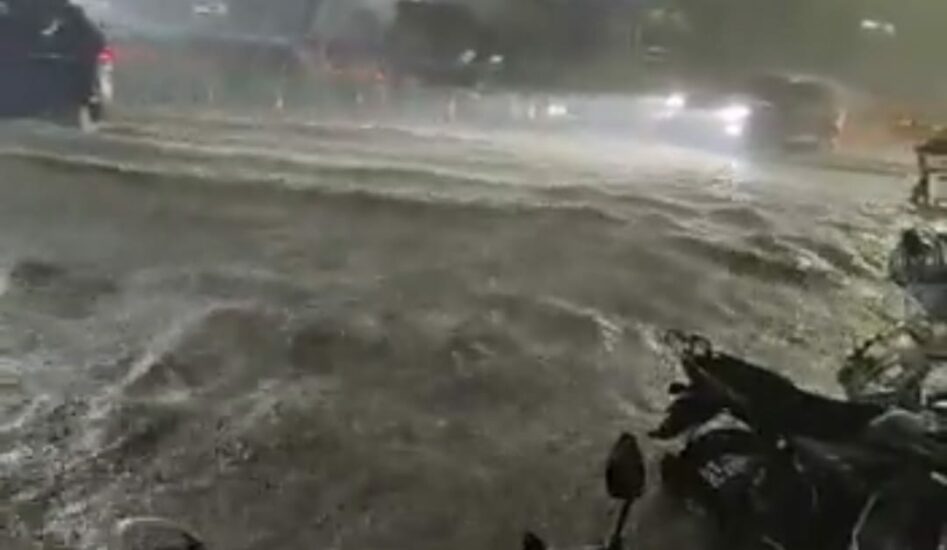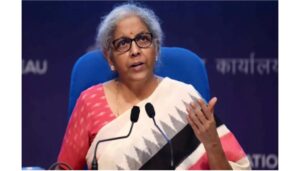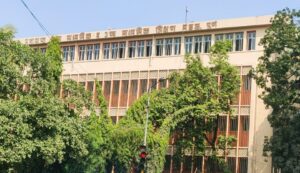Pune Most Vulnerable To Waterlogging And Localized Flooding, Says Save The Children report

Pune, 22nd April 2023: Bal Raksha Bharat, known globally as Save the Children, released a report on April 22, World Earth Day, that examined disaster risk in five Indian cities: Delhi, Kolkata, Hyderabad, Patna, and Pune. The report, entitled “Child-centred humanitarian response, planning and action for urban settings in India,” focused on mapping the interaction between disasters and at-risk children.
The study, which drew on findings from varied demographic, geo-climatic, and socio-economic contexts, identified waterlogging and localized flooding as major concerns for children living in urban areas. While these low-intensity events may not make headlines like major floods, their high frequency of occurrence can lead to significant impacts over time. The report noted that Pune was the worst-affected city in this regard, with children feeling extremely unsafe in their neighborhoods.
The study found that disaster management plans at both the city and state levels lacked child-centric approaches, and even failed to address specific child-based needs. The report argued that the absence of a deliberate child-centered approach could be seen in the fact that the Pune plan had only two references to children, one related to compensation and the other to feeding bottles in relief camps. Similarly, Kolkata’s plan only made two references to children, one in the context of their vulnerability, and the other around thermal comfort during first aid. Hyderabad’s plan considered children along with other special vulnerable groups and highlighted the need for their requirements to be met during relief and for training, without going into specifics. Finally, Delhi’s plan had a hazard-centric approach rather than a vulnerability-centric one, with children being among the vulnerable groups to be attended to during relief and preparedness actions, but without any specific actions highlighted for them.
The report also highlighted the fact that disaster management plans tended to ignore the voices of children in decision-making processes, in violation of Article 12 of the United Nations Convention on the Rights of the Child (UNCRC). This denial of children’s agency and right to participate in decision-making processes that directly affect their lives has implications for whether these processes will adequately respond to their needs. It also limits the extent to which these processes can benefit from the unique insights and innovative solutions that children can generate.
According to Sudarshan Suchi, CEO of Bal Raksha Bharat, “As in any humanitarian crisis, children and women, particularly girls and those differently-abled, senior citizens are most affected. They face different challenges and barriers and have unique needs, more often ignored or missed out. It is imperative for all of us together to invest in research, preparedness, and operations to make the urban humanitarian response – well prepared, with adequate skills, with coordination structure and SOPs in place.”
The report also noted that children living in sub-standard housing across slums, squatters, urban villages, regularised colonies, and peri-urban areas were at greater risk of being injured or killed in hazards, the majority of which were climate weather-related. The report argued that despite growing acceptance of the realities of increased risk of calamities and the importance of children in urban planning, there was relatively little research, policy, or practical attention paid to children’s well-being in the light of calamities, and how disaster management and policies could account for their perspectives, experiences, and interests. The report aims to create a framework for understanding the needs, priorities, and demands of children concerning humanitarian relief work, and how policymaking for disaster relief can evolve to better cater to their needs.
The report noted that the consequences of natural disasters were being felt more acutely due to poor urban planning and increased vulnerability for marginalized and lower-income households. Yet surprisingly, policy and disaster relief frameworks continue to lack representation of children’s interests.
Join Punekar News Whatsapp Group, Telegram, Instagram And Twitter For Regular Update about Pune City And Pimpri-Chinchwad





